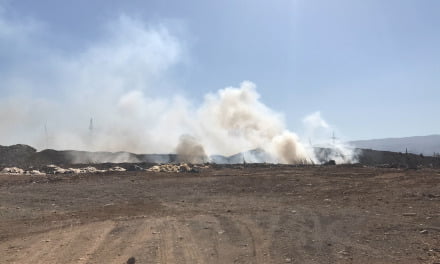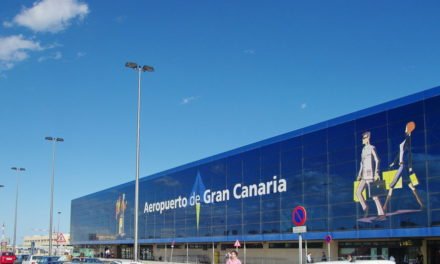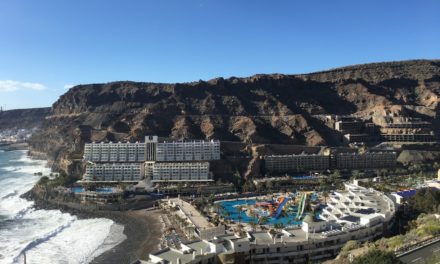“Operation Arión” was the name given to a coordinated series of raids, as part of a covert operation, across the south of Gran Canaria, and on mainland Spain that has managed to smash an organised criminal gang, suspected of having arranged transport for thousands of incoming migrants from the Canary Islands to the peninsula. More than 300 migrants, who had arrived in the archipelago aboard open boats, known as pateras and cayucos, had their travel arranged from the same travel agency in Puerto Rico de Gran Canaria. Investigators suspect the gang may have profited by more than €500,000, with access to possibly thousands of passports, and having moved many hundreds, if not thousands, of migrants irregularly through Gran Canaria and other islands.
The Policía Nacional‘s General Commissariat for Immigration earlier this month managed to expose and shut down at least three criminal groups, who together coordinated the management of illegal migrants who landed on the Canary Islands in pateras, facilitating travel from there to the Peninsula as well as other countries within the European Union. They supplied documents that either came from third parties or else they falsified paperwork to enable onward transit.
Working out of an Arguineguín hairdressers, called Barbershop Akram, which was named after the son of the couple who ran it, very near to the port where a large number of the arriving migrants were being brought in to safety, after having been rescued by the Spanish lifeboat service, Salvamento Marítimo, according journalist JM Zuloaga writing in Spanish daily La Razón, on Monday. The venture was allegedly headed by a Moroccan national, who originates from the mountainous Rif region of northern Morocco, identified with the initials TB; and his wife, KB. Their operation was dedicated to more than just cutting hair, or offering shaves, hiding in plain sight they allegedly coordinated a plot which may have sent thousands of people, who arrived on the islands from Morocco and other African countries, on to the Spanish Peninsula.
Those wising to leave the Archipelago, and head to Europe paid €1,500, if they already had a valid passport; and, otherwise, €2,000 for travel and documents to be arranged, by the organised group, who provided passports that had previously been used by other people, according to sources from within the investigation, consulted by La Razón.
The barber’s plot was well coordinated, using “captadores”, (procurers or “captors”), whose job it was to move through the tourist hotels undetected, where migrants were being temporarily accommodated under the care of NGOs, on the south of Gran Canaria, to offer their services.
Once a client had been secured, they were instructed to go to the hairdresser’s shop and deposit money and, if they did not have it immediately available, they were pointed to a specific pay phone booth from which to ask their relatives in Morocco to send funds via wire transfer. Once the fee had been sent they were given a passport to use as a supporting document so that they could receive the amount and pay the gang.
A nearby Puerto Rico de Gran Canaria travel agency arranged the tickets, as part of a “package” which included a false reservation for a hotel in the city to which they were trying to get.
The married couple, the person who controlled the pay phone and the director of the travel agency, are all among those who were arrested in a coordinated series of raids that took place across the south of Gran Canaria and on the mainland.
Before taking the arranged flights, or boarding the ship booked for their passage, migrants gathered in the hairdresser’s awaiting a pick up vehicle to take them to the port or airport of departure.
Among the travelling migrants, throughout each trip, was the “pasador“, whose job it was to collect the passports then take a flight back to the Canary Islands so that the documents could be used again.
It was on one of these journeys that Spanish National Police from the Immigration department, managed to detect a group, including the “passer” and six migrants, at Adolfo Suárez Madrid-Barajas airport.
The arrivals were noticed by agents simply for displaying particularly defiant attitudes, enough for them to stand out in the crowd, despite displaying great self-discipline, as if they had received some kind of training. The “passer” tried to hide the passports in a public restroom, but was caught out by surprise, before he could board a return trip to Tenerife.
The people in the hairdresser operation kept records details about a thousand passports and, more importantly, a full registry containing the names of the travellers, as well as the flights for which tickets were purchased for each one. More than 300 tickets had been order through the one travel agency.
The hairdresser allegedly treated the other participants in the plot very well, and paid them generously for the work they did. In the safe, in the shop, in the centre of Puerto Rico de Gran Canaria, some €300,000 in cash were found.
 4,000 passports and 45 arrests
4,000 passports and 45 arrests
When some of the migrants started to have difficulties embarking at the ports and airports on Gran Canaria and Tenerife, the plotters began to divert migrants to other islands, where a contingent group would also be sent to wait on standby, to ensure it one group was stopped, another might get through.
All the different operational groups in the network are said to have come from Morocco’s Rif region and, over time, a few broke away from the central organisation to set up their own businesses.
Police specialists involved in “Operation Arión” are now trying to establish the number of people moved through the hairdresser network, with first estimates that they could have had up to 4,000 passports at their disposal.
At least 45 arrests were made as part of an extensive operation in different parts of Spain, with charges ranging from document falsification to crimes against the rights of foreign citizens, 17 of these people having already been jailed awaiting trial. Police estimate that the profits to these organisations could well have been more than half a million euros, and but could be much higher than that.
One of the groups involved, during the latter half of 2020, was found to have arranged transit for more than 300 immigrants via Las Palmas. The “Operation Arión” investigation was supported by Europol and various units of the Policia Nacional, coordinated by the San Bartolomé de Tirajana Court of Instruction No. 3 on the south of Gran Canaria.
















